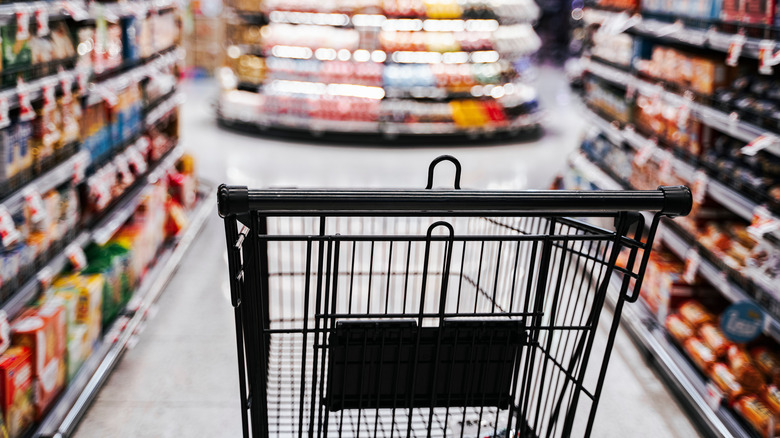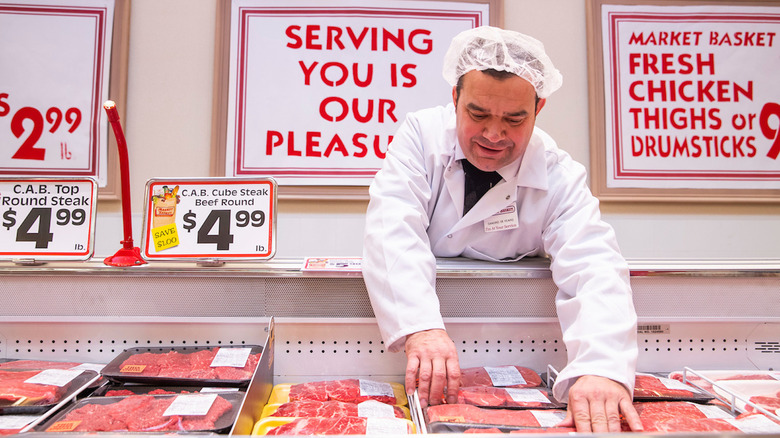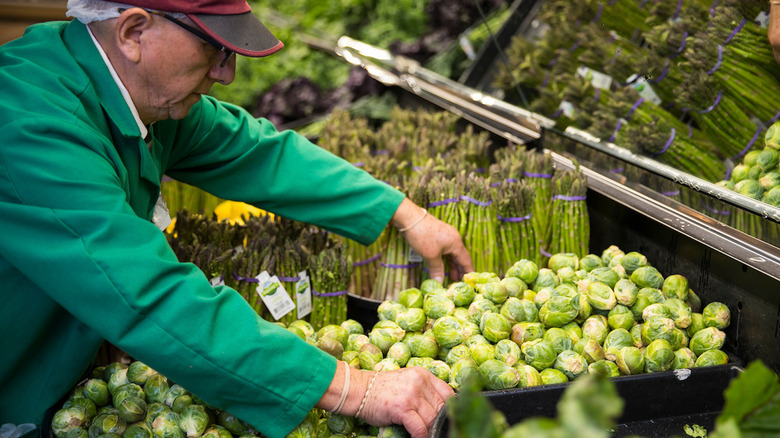The Best Grocery Chain For Inflation-Busting Is One You've Probably Never Heard Of
One of the biggest 2023 food trends, according to The New York Times, will be "the thrill of thrift." That may not come as a surprise, considering the fact that record 40-year-high inflation has put a major dent into everyone's food budgets. Coupon clippers are becoming mainstream, social media is filled with money-saving grocery hacks, and generic and private-label foods are reaching cult-classic status.
But despite these hacks, grocery stores are designed to make you spend money, according to Business Insider. Store designers and marketers spend a lot of time studying how shoppers behave, and they've come up with all kinds of tricks to get you to impulse buy. Because you can't avoid the grocery store entirely (delivery is even more expensive), people are flocking to grocery chains that are known for lower prices and less extras, such as Aldi, Lidl, WinCo, and Food4Less.
There's one regional chain in New England, however, that the rest of the United States has probably never heard about — and which consistently ranks in the top three on lists of best (and least expensive) grocery stores: Market Basket. If you haven't heard of it, ask a friend from New Hampshire, Massachusetts, Maine, or Rhode Island; chances are, you'll get an earful. Much like Boston's beloved Dunkin' and Fenway Park, New Englanders are pretty ride-or-die for the grocery chain.
Come for the prices
Market Basket, which is based in Tewksbury, Massachusetts, started out as a "grocerette" in Lowell, Massachusetts in 1917 by Athanasios and Efrosini Demoulas, who immigrated to the United States from Kalambaka, Greece. It later expanded to become Demoula's Market in the 1920s and catered to the Greek, French, and Irish immigrant communities.
After surviving the Depression, the store grew to "superette" in the '40s and then into a supermarket in the '50s, which is also when the store coined its motto, "more for your dollar." Today, the chain operates 88 supermarkets throughout New England. And while the size of the business has clearly grown, the general vibe of Market Basket is still very much that of its founders: no frills, just low prices and great customer service.
Ask any Market Basket shopper why they're devoted to the brand, and the first answer will always be the prices. It's not unusual to find name-brand items priced significantly lower — up to 15% less — than at competitors. The company can do this, according to Pymnts, because they pay on time, up front for their wholesale goods, as opposed to 30, 60 or 90 days at other chains. "This means we get maximum flexibility to negotiate with our suppliers. And we can pass those savings on, however we get them, directly in our pricing," Market Basket CEO Arthur T. Demoulas said to Pymnts in 2016.
Stay for the customer service
Market Basket keeps things simple in terms of grocery gimmicks such as loyalty programs, self-checkouts, and online ordering — as in, it doesn't do them. Like Trader Joe's, Market Basket gives customers what they want without all the bells and whistles. The website, for example, has just the basics: locations, a weekly sales flier, and a link for job postings.
Instead of investing in the latest technology, Market Basket places a premium on offering high-quality customer service. For example, it's not unusual for a front-end worker to offer to wheel your cart out to the parking lot and move the bags to the car. The store also strictly stocks shelves during the day, according to The Herald News. It can be a little chaotic in the always-busy stores. But at the same time, someone is always on hand if customers have questions.
The store also has a wide selection, often carrying products that appeal to first- and second-generation immigrants like the store's original founders. Kara Baskin wrote for Bon Appétit in 2014 that the store, still known to many New Englanders as Demoula's, isn't just a place to find a fair deal. It also offers value, thanks to a selection that is high-quality and vast. "I've yet to find a tastier Italian sub (lots of oil, lots of mayo), more varieties of ethnic foods and spices, or better deals on imported produce and local specialties," Baskin wrote.


